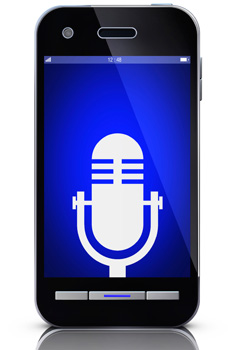 2013 Municipal Trick-or-Treat Times
2013 Municipal Trick-or-Treat Times
Taking your children out on Halloween? Visit www.hauntedwisconsin.com for a list of municipal trick-or-treat times. The site also has a calendar full of fall and Halloween activities, including pumpkin patches, haunted houses and barns, corn mazes, hayrides; and links for costume and makeup ideas, food and drink recipes, indoor and outdoor decorations; and more.
By the Numbers: $1.1 Billion
The level of revenue that legal outsourcing companies in India are expected to hit in 2013, according to a report from Channel NewsAsia.
Increasingly, U.S. law firms and corporations are outsourcing basic functions – such as due diligence, document review, and contract management – to outsourcing companies with Indian lawyers working for a fraction of U.S. billing rates.
 The report says that more than 140 Indian firms now offer legal outsourcing services – up from 50 in 2005.
The report says that more than 140 Indian firms now offer legal outsourcing services – up from 50 in 2005.
“There are about 950 law schools in India, and every year, approximately 60,000 law graduates join the legal profession, contributing to the 1.2 million registered advocates in the country,” the article states.
Tech Tip: On-the-go Dictation: Try a Pocket App
Pocket dictation apps allow lawyers to dictate on their smartphones. When the dictation is complete, the digital file is compressed, encrypted, and can be sent immediately via email for transcription.
There’s an iPhone dictation app that’s free to download. It’s called Pocket Dictate.
Go a step further, and speech recognition software for your PC or Mac turns your dictation file into text. But that’ll cost you. WL saw one package, starting at $74.99 (with discount).
Quotable: “I believe, for example, that law schools would probably be wise to think about being two years instead of three years.”
 – President Barack Obama, in a speech at Binghamton University in August. He was talking about reducing education costs.
– President Barack Obama, in a speech at Binghamton University in August. He was talking about reducing education costs.
Out there: Cell Phone Selfies: A Reasonable Police Search?
Here’s a tip for lawyers advising their smartphone-using photo-taking clients: it was reasonable for police to search a defendant’s cell phone for “selfies,” according to a federal court in North Carolina.
What’s a “selfie,” you ask? According to the court, which relied on Time magazine’s definition, a selfie is “the name given to a self-portrait photograph” – often snapped at odd angles with smartphones – and “typically made to post on a social networking website.”
 So far as WL can discern, this is the first use of the term “selfie” in a reported state or federal court decision. (And, this most likely means the use of the word soon will decline in the teenage lexicon.)
So far as WL can discern, this is the first use of the term “selfie” in a reported state or federal court decision. (And, this most likely means the use of the word soon will decline in the teenage lexicon.)
Judge Remington on selfies
WL asked Dane County Circuit Court Judge Frank Remington – who did not acquire a personal cell phone until 2011 – if he has since used his cell phone to take a selfie.
“I have never taken a picture of myself with a phone. If I wanted to see what I look like, I would simply look in a mirror.”
Aw, Snap!
From the Archives: The “Little New Deal” is 75
This year marks the 75th anniversary of State ex rel. Wisconsin Development Authority v. Dammann (1938), which upheld a key part of Wisconsin’s “Little New Deal” and paved the way for Wisconsin’s modern economic development.
 In 1937, the Legislature decided to bring electrical power to rural Wisconsin; it created the Development Authority as a private company and gave it funds to promote the program. Opponents argued that the Legislature could not do this: the state constitution had restricted mixed public-private ventures in the mid-1800s after several such ventures had met with financial disaster. But the Wisconsin Supreme Court, with some hesitation, upheld the new law.
In 1937, the Legislature decided to bring electrical power to rural Wisconsin; it created the Development Authority as a private company and gave it funds to promote the program. Opponents argued that the Legislature could not do this: the state constitution had restricted mixed public-private ventures in the mid-1800s after several such ventures had met with financial disaster. But the Wisconsin Supreme Court, with some hesitation, upheld the new law.
Post-Dammann public-private ventures have often met with controversy (Milwaukee’s Miller Park is a notable example), but they have become a vital part of Wisconsin’s economy.
Source: Jay Ranney, Madison lawyer and legal historian
